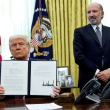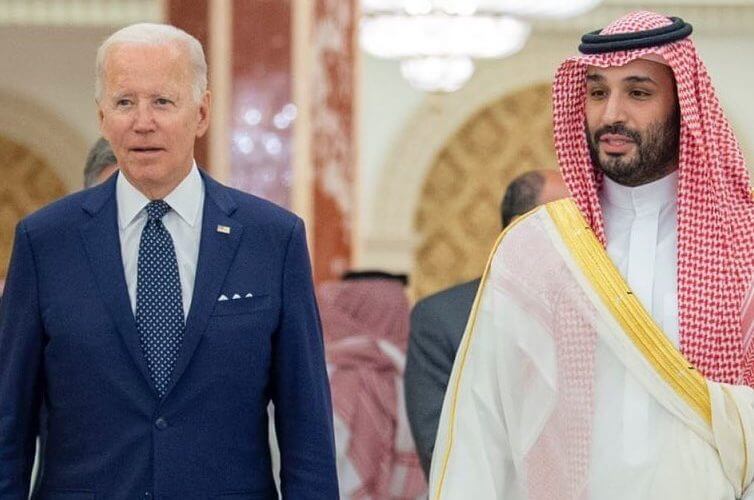By All Arab News Staff | October 12, 2022
The United States will be “reevaluating” its relationship with Saudi Arabia, OPEC’s largest oil producer, after the Saudi-led OPEC+ oil cartel decided last week to cut oil production by two million barrels a day, starting in November.
The oil cartel consists of 13 OPEC members and 10 allies, led by Russia, which produces more than 10 million barrels of oil per day and will benefit from the rising prices.
“This at least balances the mayhem that the Americans are causing,” Kremlin spokesman Dmitry Peskov said, according to Al Jazeera. Peskov added that such “balanced, thoughtful and planned work of the countries that take a responsible position within OPEC is opposed to the actions of the U.S.”
While Russia praised the OPEC decision to cut oil production as “balanced,” the oil cutback has raised fears in the U.S. and elsewhere that prices will rise at a time when the world finds itself already amid an escalating energy crisis.
“I think the president’s been very clear that this is a relationship that we need to continue to reevaluate, that we need to be willing to revisit,” U.S. National Security Council spokesperson John Kirby told CNN said of the Saudi-U.S. relationship. “Certainly in light of the OPEC decision, I think that’s where [President Joe Biden] is.”
In July, the U.S. president traveled to Saudi Arabia to meet with the country’s de facto ruler, Crown Prince Mohammed bin Salman (MBS). Biden asked him to increase oil production but the crown prince refused.
“The kingdom has announced an increase in its production capacity level to 13 million barrels per day, after which the kingdom will not have any additional capacity to increase production,” MBS reportedly said at the time.
Leading Democrats are now calling for the U.S. to stop supporting and cooperating with Saudi Arabia.
“The United States must immediately freeze all aspects of our cooperation with Saudi Arabia, including any arms sales and security cooperation beyond what is absolutely necessary to defend U.S. personnel and interests,” said U.S. Senator Bob Menendez, the leading Democrat on the Senate Foreign Relations Committee.
“As chairman of the Senate Foreign Relations Committee, I will not green-light any cooperation with Riyadh until the kingdom reassesses its position with respect to the war in Ukraine,” Menendez said.
According to Jonathan Panikoff, director of the Scowcroft Middle East Security Initiative at the Atlantic Council’s Middle East Program, the OPEC decision “represents a profound shift in U.S.-Saudi relations, and much of that has to do with Saudi’s de facto leader” – the crown prince.
“It feels punitive against the Biden administration, and I think it’s hard to think it’s otherwise because the Saudis aren’t naive about the U.S. political situation,” Panikoff said to NPR. “I don’t think we’ve fully accepted the notion that he [the Saudi crown prince] is a different leader than we’ve ever dealt with, and so we’re going to have to have a different relationship.”
According to Firas Maksad, who is a senior fellow at the Middle East Institute, Saudi Arabia had “legitimate business reasons for the cut. They’re seeking higher prices now in case a global recession reduces demand later.”
“This is a decision that was not just Saudi. It was unanimous, and it was driven by economics and market dynamics rather than politics,” Maksad told NPR.
However, the MEI senior fellow said that, at the same time, Saudi Arabia is building closer ties with both China and Russia.
“And so they are building bridges to China – which, by the way, accounts for over a quarter of oil exports from Saudi Arabia – and also with Russia, that had been sort of expanding its role in the Middle East,” Maksad said.










